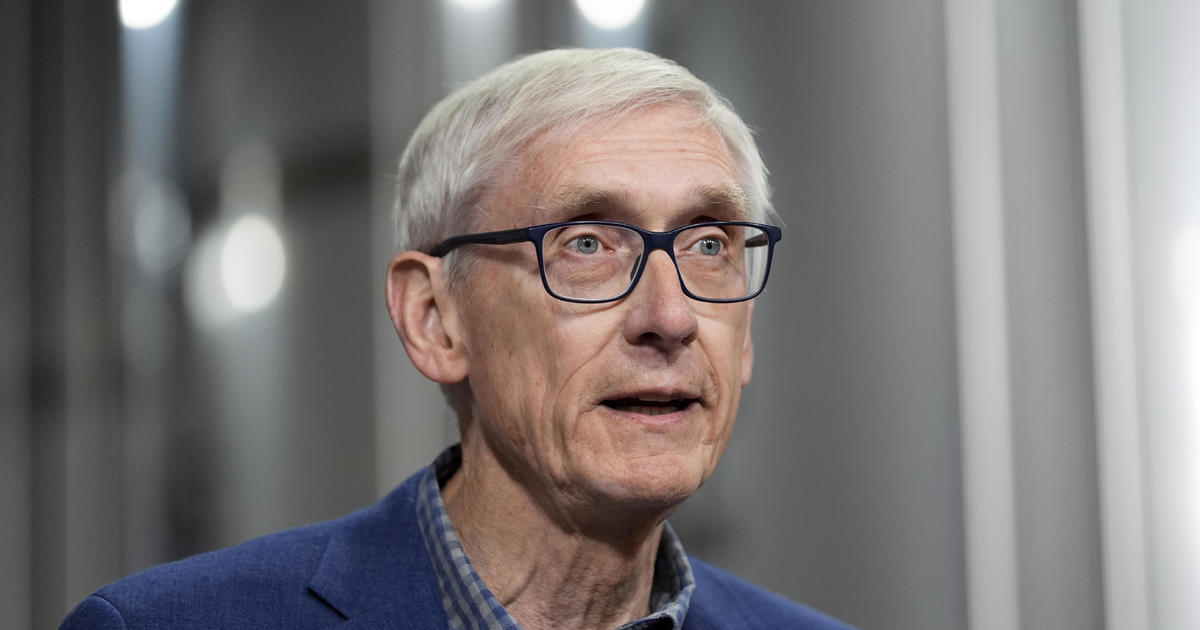Dayton: Medicaid Expansion Will Be Ready March 1
ST. PAUL, Minn. (AP) -- Gov. Mark Dayton on Thursday pushed up a Medicaid health care expansion he sought under the federal health care overhaul, saying broader coverage for 95,000 vulnerable adults will start March 1, seven months sooner than previously predicted.
The Democratic governor issued his first veto threat when asked at a news conference whether the Republican-led Legislature could block the change.
"I would veto anything that came forward that would impede this program or rescind it, and unless they have two-thirds in both houses to override this, this program is going to take effect as it should," Dayton said.
Dayton has made the extended Medicaid coverage a priority, calling it a "no brainer" and "about the easiest decision that I've had to make in my first three weeks in office."
He ordered the expansion within 48 hours of taking office earlier this month, reversing the stance of predecessor Tim Pawlenty, a likely Republican presidential candidate who took steps to block Minnesota's participation in the federal health care law. An official in Pawlenty's administration had given Oct. 1 as a realistic date for the Medicaid rollout.
Dayton said timetables changed after he appointed Human Services Commissioner Cindy Jesson and charged her with making the Medicaid expansion a top goal.
The expansion of the federal-state program, called Medical Assistance in Minnesota, is expected to bring $1.3 billion in federal dollars to hospitals, clinics and doctors. It will bring more generous benefits for 83,000 adults now insured by two state-funded programs, MinnesotaCare and General Assistance Medical Care, and provide coverage for 12,000 uninsured.
Minnesota is one of a small group of states that already offered health care coverage for low-income adults. The federal health care law gave those states the option of moving those patients into Medicaid to draw a federal match until 2014, when the federal government is slated to start paying the full cost of covering low-income adults nationwide. Dayton's administration has said the state will have a small net gain when all costs and savings from expanded Medicaid are considered.
Despite the veto threat, Senate Health and Human Services Committee Chairman David Hann said he plans to move ahead with a bill that would repeal the state's authority for the Medicaid expansion. Hann said he is concerned that the additional federal dollars will lock in too much state spending, and questioned whether Dayton's administration can meet the aggressive deadline for implementation.
"This is not wise for us to do. This is going to make our efforts to manage our budget that much more difficult," said Hann, R-Eden Prairie.
Jesson said she is confident the Department of Human Services can pull off the switch by March 1, even as she acknowledged ongoing negotiations with the federal government over when the federal money will start to flow.
"We don't want to let that stand in the way of rolling this out," she said.
Dayton said he has assurances from Health and Human Services Secretary Kathleen Sebelius and Vice President Joe Biden that the money will come through.
Significant administrative work will be required to make the switch behind the scenes. Jesson predicted it will take state and county workers six months to manually enroll 51,000 MinnesotaCare patients in Medicaid. MinnesotaCare caps hospital benefits and comes with more out-of-pocket costs for patients than Medicaid.
General Assistance Medical Care patients can be switched automatically because they're on the same computer system as Medicaid patients, while uninsured adults with incomes of about $8,000 or less can sign up for Medicaid at county human services offices starting March 1.
Pawlenty and lawmakers enacted a pared-back version of General Assistance Medical Care last year, but all but four major Twin Cities hospitals declined to participate.
Minnesota Hospital Association Chairwoman Mary Klimp, who heads a New Prague hospital, said the Medicaid expansion will help hospitals statewide.
"This is incredibly important to rural Minnesota," she said.
The Department of Human Services plans to send notices to those affected by the switch and work with advocates to help eligible uninsured adults sign up.
Also Thursday, the Minnesota Department of Health announced it will seek a $1 million federal planning grant to start a health insurance exchange where consumers can buy health coverage. A release from the agency said Sebelius is allowing the state to apply for the grant after Pawlenty declined to do so last year, and that the money is expected by March 1.
(© Copyright 2011 The Associated Press. All Rights Reserved. This material may not be published, broadcast, rewritten or redistributed.)



